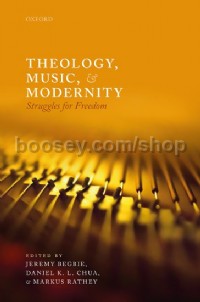Theology, Music and Modernity: Struggles for Freedom
Theology, Music and Modernity: Struggles for Freedom
* Estimated price converted from UK retail price
*Offers an in-depth theological reading of modernity through music
*Illustrates that music has remarkable powers to bring to light the theological currents that have shaped modern culture
*Features contributions from an international team of distinguished theologians, musicologists, and music theorists
Theology, Music, and Modernity addresses the question: how can the study of music contribute to a theological reading of modernity? It has grown out of the conviction that music has often been ignored in narrations of modernity's theological struggles. Featuring contributions from an international team of distinguished theologians, musicologists, and music theorists, the volume shows how music—and discourse about music—has remarkable powers to bring to light the theological currents that have shaped modern culture. It focuses on the concept of freedom, concentrating on the years 1740-1850, a period when freedom—especially religious and political freedom-became a burning matter of concern in virtually every stratum of Western society.
The collection is divided into four sections, each section focusing on a key phenomenon of this period—the rise of the concept of 'revolutionary' freedom; the move of music from church to concert hall; the cry for eschatological justice in the work of black hymn-writer and church leader Richard Allen; and the often fierce tensions between music and language. There is a particular concern to draw on a distinctively 'Scriptural imagination' (especially the theme of New Creation) in order to elicit the key issues at stake, and to suggest constructive ways forward for a contemporary Christian theological engagement with the legacies of modernity today.




